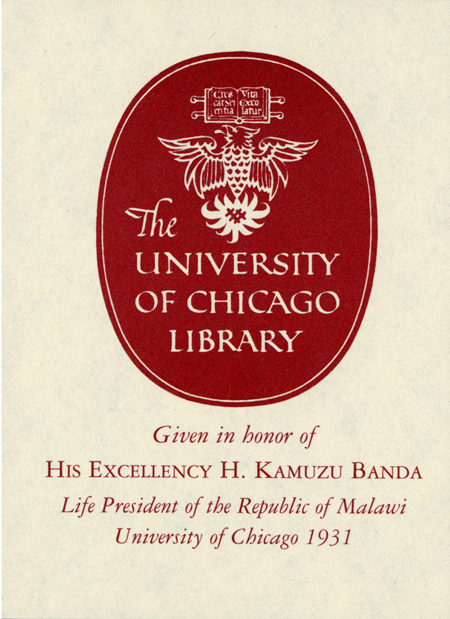Planning for post-Mugabe Zimbabwe /
Saved in:
| Author / Creator: | Gavin, Michelle D. |
|---|---|
| Imprint: | New York : Council on Foreign Relations, c2007. |
| Description: | xi, 45 p. : col. map ; 28 cm. |
| Language: | English |
| Series: | CSR ; no. 31 CSR (New York, N.Y.) ; no. 31. |
| Subject: | |
| Format: | E-Resource Print Book |
| URL for this record: | http://pi.lib.uchicago.edu/1001/cat/bib/7094304 |
MARC
| LEADER | 00000cam a2200000 a 4500 | ||
|---|---|---|---|
| 001 | 7094304 | ||
| 005 | 20140624094900.0 | ||
| 008 | 100106s2007 nyub b 000 0 eng d | ||
| 003 | ICU | ||
| 010 | |a 2009294495 | ||
| 015 | |a GBB035749 |2 bnb | ||
| 016 | 7 | |a 014701567 |2 Uk | |
| 020 | |a 9780876094099 | ||
| 020 | |a 0876094094 | ||
| 035 | |a (OCoLC)185690868 | ||
| 035 | |a co1345186 | ||
| 040 | |a BTCTA |b eng |c BTCTA |d DLC |d BAKER |d YDXCP |d GUL |d SUC |d UWC |d IAY |d UKM |d HEBIS | ||
| 042 | |a lccopycat | ||
| 043 | |a f-rh--- |a n-us--- | ||
| 049 | |a CGUA | ||
| 050 | 0 | 0 | |a E183.8.Z55 |b G38 2007 |
| 082 | 0 | 0 | |a 327.7306891 |2 22 |
| 100 | 1 | |a Gavin, Michelle D. |0 http://id.loc.gov/authorities/names/no2008022702 |1 http://viaf.org/viaf/2269994 | |
| 245 | 1 | 0 | |a Planning for post-Mugabe Zimbabwe / |c Michelle D. Gavin. |
| 260 | |a New York : |b Council on Foreign Relations, |c c2007. | ||
| 300 | |a xi, 45 p. : |b col. map ; |c 28 cm. | ||
| 336 | |a text |b txt |2 rdacontent |0 http://id.loc.gov/vocabulary/contentTypes/txt | ||
| 337 | |a unmediated |b n |2 rdamedia |0 http://id.loc.gov/vocabulary/mediaTypes/n | ||
| 338 | |a volume |b nc |2 rdacarrier |0 http://id.loc.gov/vocabulary/carriers/nc | ||
| 490 | 1 | |a CSR ; |v no. 31 | |
| 500 | |a At head of title: Center for Preventive Action. | ||
| 500 | |a "October 2007." | ||
| 504 | |a Includes bibliographical references. | ||
| 520 | |a "Once among sub-Saharan Africa's most prosperous and promising states, Zimbabwe has been driven by mismanagement to social and economic ruin. The plight of its people and the prospect for instability in the region make the situation deeply troubling for its citizens, its neighbors, and for the United States and the entire international community. But there appears to be little in the way of viable options to bring about favorable change. In this Council Special Report, produced by the Council's Center for Preventive Action, Michelle D. Gavin urges the United States to look past the current government to Zimbabwe's future. She argues that by leading an international process to plan for recovery and reconstruction after President Robert Mugabe eventually departs, the United States can increase the likelihood that change, when it comes, will bring constructive reform instead of conflict and state collapse. Moreover, this planning could encourage and possibly hasten Mugabe's exit. Ms. Gavin proposes a series of multilateral steps the United States could take now, such as building consensus around post-Mugabe reform measures and establishing an international trust fund to be used for assistance. Such activities would not only provide incentives for Zimbabwe's next leaders to pursue sound governance, but would also give the United States an opportunity to strengthen its often-troubled relationship with South Africa. Planning for Post-Mugabe Zimbabwe takes a fresh but realistic look at the situation. In so doing, it offers a way to advance U.S. interests in the region and increase the chance that Zimbabwe's eventual political transition reverses, rather than continues, that country's decline."--Provided by publisher. | ||
| 600 | 1 | 0 | |a Mugabe, Robert Gabriel, |d 1924- |1 http://viaf.org/viaf/19617 |
| 650 | 0 | 7 | |a Politische Krise. |2 swd |
| 651 | 0 | |a United States |x Foreign relations |z Zimbabwe. | |
| 651 | 0 | |a Zimbabwe |x Foreign relations |z United States. | |
| 651 | 0 | |a Zimbabwe |x Politics and government |y 1980- |0 http://id.loc.gov/authorities/subjects/sh85149824 | |
| 651 | 7 | |a Simbabwe. |2 swd | |
| 600 | 1 | 7 | |a Mugabe, Robert Gabriel, |d 1924- |2 fast |0 http://id.worldcat.org/fast/fst00058993 |0 http://id.worldcat.org/fast/58993 |1 http://viaf.org/viaf/19617 |
| 650 | 7 | |a Diplomatic relations. |2 fast |0 http://id.worldcat.org/fast/fst01907412 | |
| 650 | 7 | |a Politics and government |2 fast |0 http://id.worldcat.org/fast/fst01919741 | |
| 651 | 7 | |a United States. |2 fast |0 http://id.worldcat.org/fast/fst01204155 | |
| 651 | 7 | |a Zimbabwe. |2 fast |0 http://id.worldcat.org/fast/fst01209419 | |
| 648 | 7 | |a Since 1980 |2 fast | |
| 710 | 2 | |a Council on Foreign Relations. |0 http://id.loc.gov/authorities/names/n81061396 |1 http://viaf.org/viaf/123753286 | |
| 710 | 2 | |a Center for Preventive Action. |0 http://id.loc.gov/authorities/names/n96074726 |1 http://viaf.org/viaf/121946231 | |
| 830 | 0 | |a CSR (New York, N.Y.) ; |v no. 31. | |
| 856 | 4 | 0 | |u http://www.cfr.org/content/publications/attachments/Zimbabwe_CSR31.pdf |
| 903 | |a HeVa | ||
| 929 | |a cat | ||
| 999 | f | f | |i 1e69aaf8-24e0-55d3-9b58-c50d2df270ad |s 5f994059-b235-514c-9749-bde368a067db |
| 928 | |t Library of Congress classification |a DT2996 .G38 2007 |l JRL |c JRL-Gen |i 5585653 | ||
| 928 | |t Library of Congress classification |a DT2996 .G38 2007 |l Online |c UC-FullText |u http://www.cfr.org/content/publications/attachments/Zimbabwe_CSR31.pdf |g ebooks |i 7528561 | ||
| 927 | |t Library of Congress classification |a DT2996 .G38 2007 |l JRL |c JRL-Gen |e BAND |b 80867481 |i 8394214 | ||

